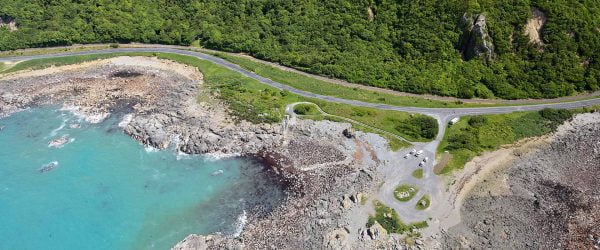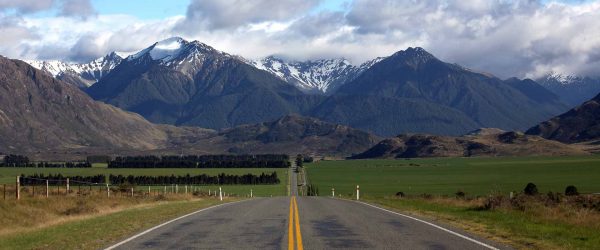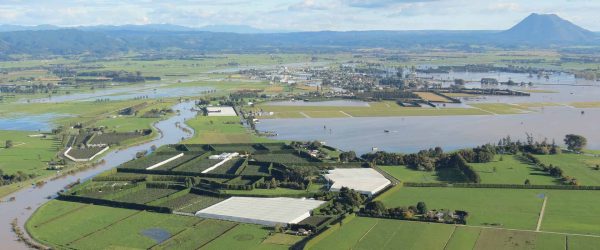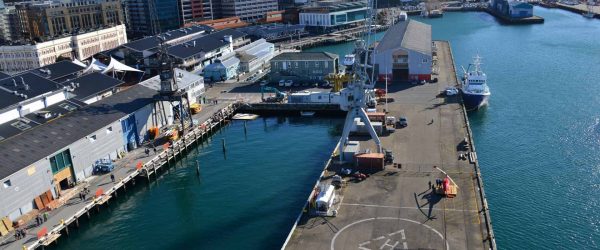Embedding models within robust decision-making
Vision
For emerging decision-making methodologies to be supported by the latest generation of economic, risk and impact modelling.
Project description
Resilience planning has traditionally focused on mitigating the most likely future conditions. However, research indicates that communities are increasingly seeking resilience decisions that are robust across a broad range of assumptions and possible futures.
Collaborating with our peers in the Resilience, Policy and Governance programme we are investigating how the decision-support modelling tools, RiskScape and MERIT, can best be used by decision-makers in planning for uncertain future events and conditions. This research is organised into two projects:
- Computational experiments: generating representative scenarios that identify key vulnerabilities and trade-offs of alternative resilience-building strategies by exploring the consequences of alternative sets of assumptions in our risk and economic modelling.
- Embedding modelling into emerging processes: applying RiskScape and MERIT as tools to support resilience decision-making in emerging processes such as Real Options, Hedging Strategies, Dynamic Adaptive Planning Pathways and Multi-Variate Assessment. These processes all facilitate resilience by helping decision-makers create long-term plans under conditions of uncertainty.
Our goal is for resilience decision-makers in Aotearoa New Zealand to successfully plan resilient futures for our economy, communities and environment under conditions of uncertainty.
Resource Outputs from this project
Methods and lessons for business resilience and recovery surveys
A collection and synthesis of instruments and best practices for surveying businesses for disaster research.
A new mapping tool to visualise critical infrastructure levels of service following a major earthquake
R. Mowll, M. Anderson, T. Logan, J. Becker, L. Wotherspoon, C. Stewart, D. Johnston, D. Neely 2024 A new mapping tool to visualise critical infrastructure…
Using an integrated dynamic economic model to support infrastructure investment decision-making
Determining the best investment options to reduce overall event losses following "shock" events using a hypothetical Wellington earthquake scenario.
Societal expectations for seismic performance of buildings
Brown, C., Abeling, S., Horsfall, S., Ferner, H. & Cowan, H. (2022). Societal expectations for seismic performance of buildings. Resilient Organisations. https://www.resorgs.org.nz/publications/societal-expectations-for-seismic-performance-of-buildings/
Societal expectations for seismic performance of buildings: detailed report on interviews.
Abeling, S., Horsfall, S., Brown, C., Ferner, H. & Cowan, H. (2022). Societal expectations for seismic performance of buildings: detailed report on interviews. Resilient Organisations. https://www.resorgs.org.nz/publications/societal-expectations-for-seismic-performance-of-buildings-detailed-report-on-interviews/
Societal expectations for seismic performance of buildings: detailed report on focus groups
Horsfall, S., Brown, C., Abeling, S., Ferner, H. & Cowan, H. (2022). Societal expectations for seismic performance of buildings: detailed report on focus groups. Resilient Organisations.…
Behavioural science applied to risk-based decision processes: a case study for earthquake prone buildings in New Zealand
Ball, R.J., Hudson-Doyle, E. E., Nuth, M., Hopkins, J.W., Brunsdon, D. & Brown, C.O. (2022). Behavioural science applied to risk-based decision processes: a case study…
Seismic repair and retrofit prioritization framework
Brown, B., Seville, E., Sorsfall, S., Bugler, G., Brunsdon, D.& Hare, J. (2022). Seismic repair and retrofit prioritization framework. Earthquake Spectra, 38 (4). https://doi.org/10.1177/87552930221109292
Presentation slides, ‘Modelling Disruption’ webinar
Presentation on MERIT modelling tool from Nicky McDonald (MEResearch), Charlotte Brown (Resilient Organisations) and Michele Daly (GNS Science), March 2022
Modelling Disruption
How the MERIT took helps communities understand the social and economic impacts of disruptive events, and assess mitigation options.
Building Adaptative Business Continuity Plans: Practical tips on how to inject adaptiveness into continuity planning processes
Hatton, T., & Brown, C. (2021). Building adaptive business continuity plans: Practical tips on how to inject adaptiveness into continuity planning processes. Journal of business…
Economic Recovery: Enabling Comparative Research on COVID-19 CONVERGE COVID-19 Working Groups for Public Health and Social Science Research: Research Agenda-Setting Paper
Chang SE, Brown C, Dormady N, Handmer J, Kajitani Y, Keating A, Rose A, Watson M, Wein A, Yamano N. 2020. Economic recovery: enabling comparative…
Droughts and farms’ financial performance: a farm‐level study in New Zealand
Quantifying the impacts of droughts on the profitability of dairy, sheep and beef farms in New Zealand.
The silent assassin: Business demand changes following disaster
Sampson K, Hatton T, Brown C. 2018. The silent assassin: Business demand changes following disaster. Journal of Business Continuity & Emergency Planning. 12(1):79-93.
Planning to Adapt: Identifying Key Decision Drivers in Disaster Response Planning
Brown CO, Hayes JL, Milke MW. 2021. Planning to adapt: identifying key decision drivers in disaster response planning. Civil Engineering and Environmental Systems. 38(1):20-35. doi:10.1080/10286608.2021.1887155.









